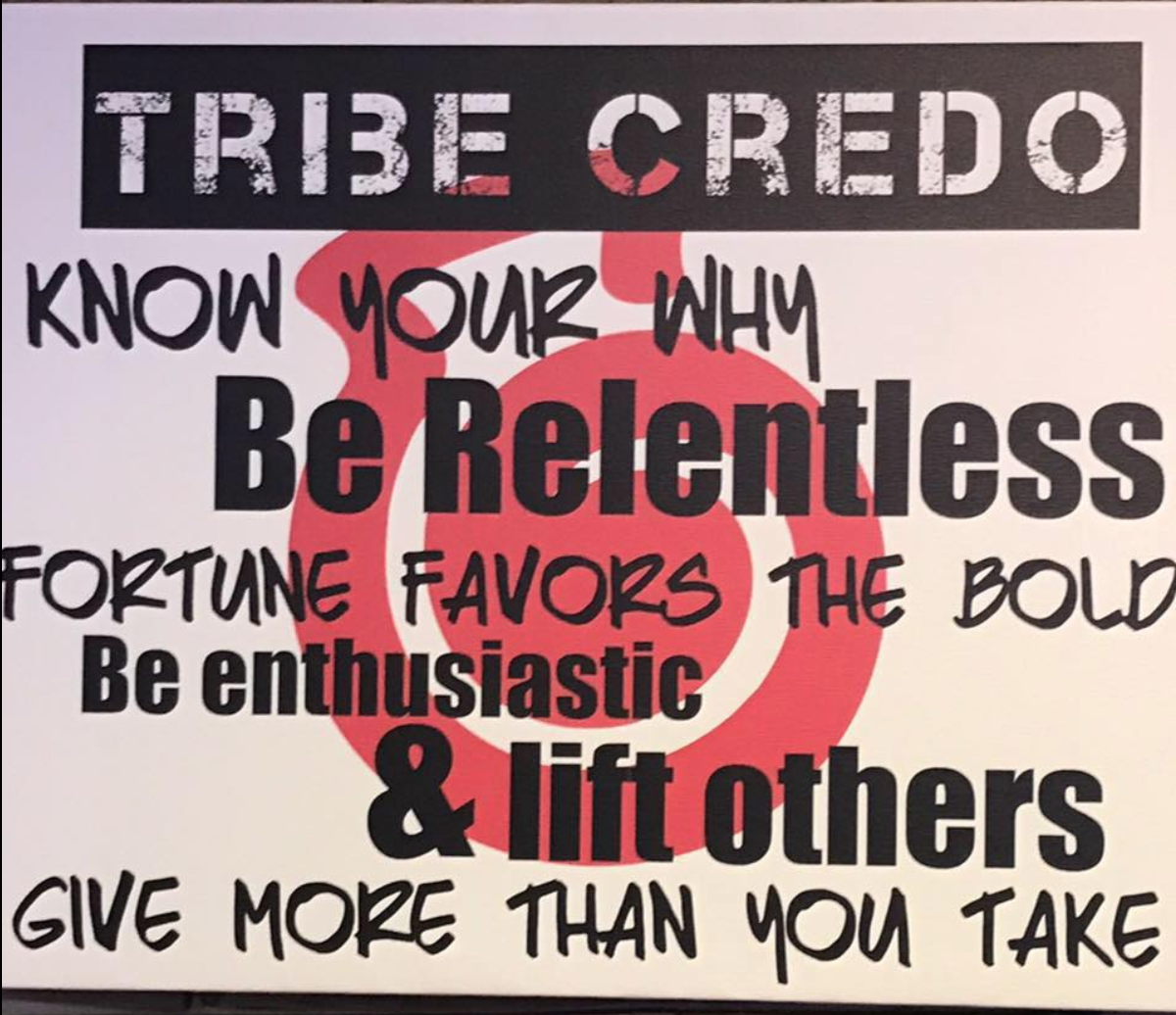A Newborn Fit Fam
Building a culture takes conscientious effort and calculated action. To my surprise, having friendly, high-producing individuals in the same office doesn’t guarantee a positive work environment. Time needs to be scheduled specifically for discussing the organization’s mission, values, and how well the organizational culture is staying true to those tenants. At least, this is what I have seen in my first two weeks at Fit Tribe as an intern.
The values and expectations at Fit Tribe haven’t changed since its inception in 2012. Coaches have always been held to high standards regarding technical training knowledge, organization, cleanliness, and personal responsibility for client and process issues. General guidelines include things like “always being cool” to customers and coworkers, never making assumptions, and communicating clearly with others. Generosity, relentlessness, and personal ambition are celebrated. Fit Tribe even has their own “Tribe Credo:” values created by Jesse for both coworkers and members to follow (photo attached). Even though the organization’s values have been consistent and well documented, the employees who commit to embody these principles don’t always follow through.

For context, my official internship start date came at the perfect time to see cultural phenomena unfold. After a period of high turnover, the lead coach/facility manager left, and new assistant coaches and interns are currently being trained. In effect, Fit Tribe has a clean cultural slate and is definitely trying to re-engineer the internal work atmosphere. Without the presence of the pessimistic-skewing old lead coach, Jesse wanted to take a new approach to employee on-boarding. Similarly to how I work on building “indoctrination” campaigns for potential customers, he decided we would need to start thinking about employee onboarding in the same way: getting people to “buy in” to the work, the processes, and the brand to build a culture.
(I’d like to include a side note that in Fit Tribe’s prime as a multiple 7-figure business, Jesse and his managers never really had scheduled conversations about “culture.” Everyone was strong believers in the business and held each other to universally high standards so a positive culture was self-regulated. Thus, I believe this shift to spending a majority of leadership energy focused on culture is due to context and I’m not sure if it’ll continue once a new culture is considered developed.)
Since I’ve been at Fit Tribe for a while now in other capacities, my comments on how people learn these cultural norms are based off the recent experiences of the new employees, not my original experience. The major components are discussion and repetition. When a new employee is brought on board, it is everyone’s responsibility to help them with training and reinforcing cultural principles. There is a set schedule for when new hires learn certain processes and systems. On these days, explanations about systems always end with how that specific process improves the customer journey and ties back to the company mission. The same key messages tend to be repeated often.
After explanation and video training, new hires are quickly given real practice (on phones, the training floor, talking to clients, etc.). If they make a mistake, constructive criticism is handled sternly but develops into a conversation centered around why the mistake doesn’t align with Fit Tribe values, not specifics about the individual’s shortcomings. At this stage in culture development, Jesse likes to turn any employee’s misstep into a discussion regardless of whether or not they are new. I see this tendency as a way to reinforce what expectations look like in action, build vigilance, and fight complacency. He wants that self-regulated culture back and that stems from more experienced employees.
Language is another tool Fit Tribe uses to teach cultural norms. Words and phrasing are talked about frequently in a group setting and it is expected that employees are conscious about what they say and how it comes across. If a coach says “diet” instead of “nutrition” or “class” instead of “session,” they can expect any other Fit Tribe coach (or member, who also knows the word rules) to assign them ten burpees, or at least bring verbal attention to the slip-up. (I think it’s important to note that the burpee “punishment” is presented in a fun and joking way. New hires find it funny while also being effective. From what I’ve seen so far, those that do the burpees stop speaking incorrectly faster than those who just get normal reminders). Additionally, Jesse tends to get “preach-y” about attitude and value. So, throw in random weekly 20-minute ramblings from Jesse that always end up being a manifesto about a Fit Tribe principle, and new hires are sufficiently indoctrinated with Fit Tribe ways of thinking.
Fit Tribe’s values and mission have stayed consistent even through business turmoil. However, they are used to their old team that were strong believers of the business. Tasked with reinstating high standards with mostly new employees, it will be interesting to see if they adjust to the environment or if the environment adjusts to them.
